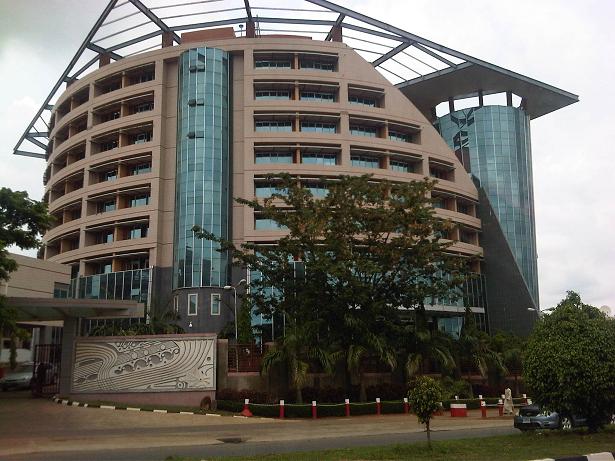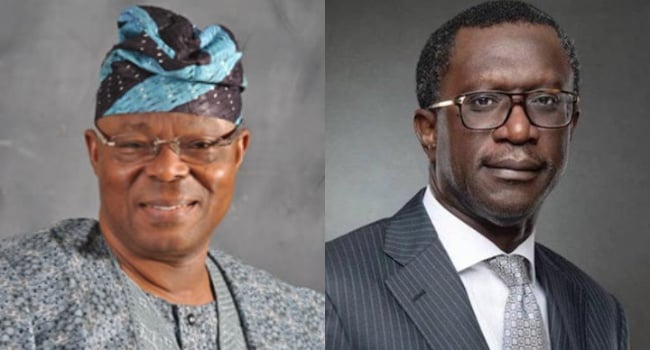The Nigerian Communications Commission (NCC) has unveiled a general authorisation framework (GAF) to enhance growth in the industry and empower underserved communities.
The framework was unveiled on Thursday in Abuja during a stakeholder engagement for the Nigerian Telecoms Industry.
Aminu Maida, executive vice-chairman (EVC) of NCC, said the sector had become a symbol of innovation and progress, revolutionising communication, improving access to information, and reshaping business operations.
Maida, represented by Rimini Makama, executive commissioner, stakeholder management,, highlighted the tremendous progress made in the telecommunications sector over the past 24 years.
Advertisement
He said the sector was at a turning point, where disruptive innovations were accelerating the evolution of the communications ecosystem.
“This progress has been driven by the rapid uptake of mobile technologies, surging data consumption and an increasing appetite for digital services,” Maida said.
“We are now at a turning point where the nature of innovation demands a regulatory paradigm that is not only responsive but enabling.
Advertisement
“Broadband penetration continues to grow, while digital literacy is rising.”
He further said through the innovations, a solid foundation for a vibrant digital economy driven by accessibility, innovation and inclusivity, is created.
Maida said technological innovation was accelerating worldwide and across the nation.
He emphasised the need for a regulatory paradigm that was not only responsive but also enabling.
Advertisement
The EVC said it would allow innovators to experiment without unnecessary restrictions, adding that the framework is introduced as a key initiative to achieve this goal.
“The framework has introduced three key instruments that would provide a platform for innovators to test and validate their ideas, assess risk, and measure outcomes before deployment,” he said.
“The success of the framework depends on the active participation of stakeholders, including mobile network operators, service providers, infrastructure companies, OEMs, startups, civil society and academia.”
‘FRAMEWORK AIMED TO EXPAND ACCESS’
Advertisement
The EVC said the framework aimed to promote inclusive innovation, expand access, close connectivity gaps, and empower underserved communities.
“This objective lies at the core of the NCC’s latest initiative, the General Authorisation Framework,” he added.
Advertisement
“By adopting this approach, we are providing a platform for innovators of various sizes, whether they are startups or established companies, to demonstrate feasibility, assess risk, and measure outcomes before deployment.
“This model encourages experimentation and responsible innovation while safeguarding consumer rights and public interest.”
Advertisement
Maida expressed optimism that the stakeholder engagement would spark curiosity, refine the collective vision and accelerate the journey towards a more connected, innovative and prosperous Nigeria.
The EVC called for collaboration and partnership to refine the approach and ensure its success in Nigeria.
Advertisement
He added that the future of Nigeria’s digital economy was unfolding rapidly, with the communications sector at the heart of the future.
Earlier, Usman Mamman, NCC’s director, licensing and authorisation department, said that GAF resulted from extensive research, cross-departmental collaboration and evaluation of global best practices, and local industry dynamics.
Mamman described it as a flexible and forward-looking approach to licensing that promotes innovation while ensuring regulatory oversight, consumer protection and market integrity.
According to the director, the commission reviewed recent service applications and pilot proposals internally, revealing a growing need for a flexible pathway to test new and emerging ideas.
He said a benchmark study was also conducted to learn from other countries, including the UK’s Ofcom Sandbox model and Singapore’s Infocomm Media Development Authority (MDA) testbeds.
“This shows a growing need for a flexible and well-structured pathway to test new and emerging ideas,” he said.
Mamman urged stakeholders to create a strong connection between innovation and regulation, bridging start-up visionaries with established players, and current limitations with future possibilities.










